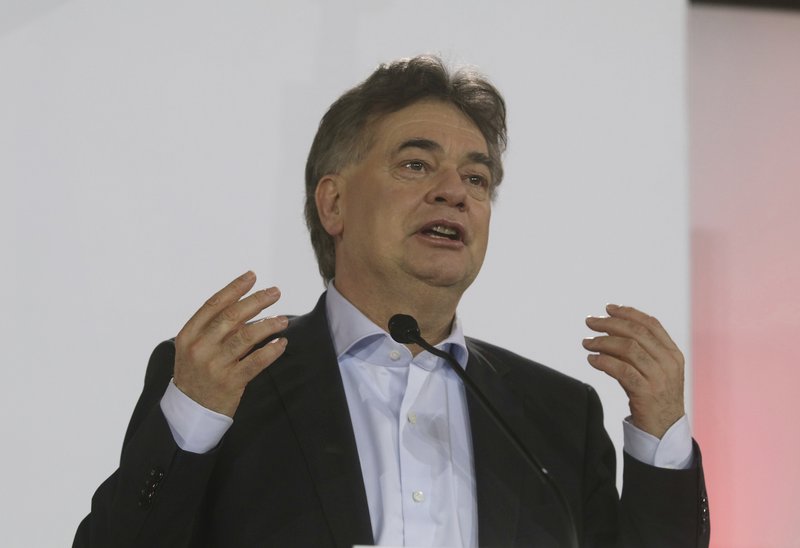BERLIN -- Members of Austria's Green Party voted Saturday to join a new government led by conservative former Chancellor Sebastian Kurz, clearing the final hurdle for a previously untested left-right alliance at the national level.
A clear 93% majority of Green delegates backed the coalition pact that was already approved by their party leadership and Kurz's Austrian People's Party last week. Out of 264 delegates, 246 voted in favor of the pact.
Werner Kogler, the leader of the Green Party, had urged delegates to put aside concerns about entering into a coalition with Kurz's conservatives and recognize the opportunity to achieve progress on issues such as cutting child poverty, increasing government transparency and combating climate change. He noted that months of negotiations with the People's Party had already produced a plan for a 2021 tax overhaul that emphasizes environmental protection.
"Big, fat, stinking diesel SUVs are going to get more expensive," Kogler told the party meeting in Salzburg, citing the current wildfires in distant Australia as an example of natural disasters already being fueled by climate change.
The Greens want Austria to become carbon-neutral in 2040, a decade earlier than the European Union's target.
The party made strong gains in September's national election on the back of mounting voter concern about climate change. It took almost 14% of the vote, coming in fourth behind the far-right Freedom Party, the center-left Social Democrats and Kurz's party, which received more than 37% of the vote.
The election became necessary after the collapse of Kurz's previous coalition government with the Freedom Party following the release of a video showing the far right's then-leader, Heinz-Christian Strache, offering favors to a purported Russian investor.
The Austrian coalition is being closely watched as a possible template for a future government in neighboring Germany, where the Green Party has also been riding high in recent polls. Chancellor Angela Merkel's current coalition partner, the center-left Social Democrats, have meanwhile dropped to an all-time low.
The new Austrian government will see Kurz reclaim the title of Europe's youngest head of government, at 33.
Kogler will become vice chancellor, while fellow party member Leonore Gewessler will lead a new "super ministry" overseeing the environment, energy and infrastructure. The 42-year-old was previously the political head of the environmental campaign group Global 2000.
The Green Party will also send the first Austrian of immigrant background into government. Jurist Alma Zadic, whose family fled to Austria from war-torn Bosnia when she was 10, will take the justice portfolio.
Interim Foreign Minister Alexander Schallenberg will remain in that post. Although not formally a member of the People's Party, he has close ties to Kurz.
A Section on 01/05/2020
